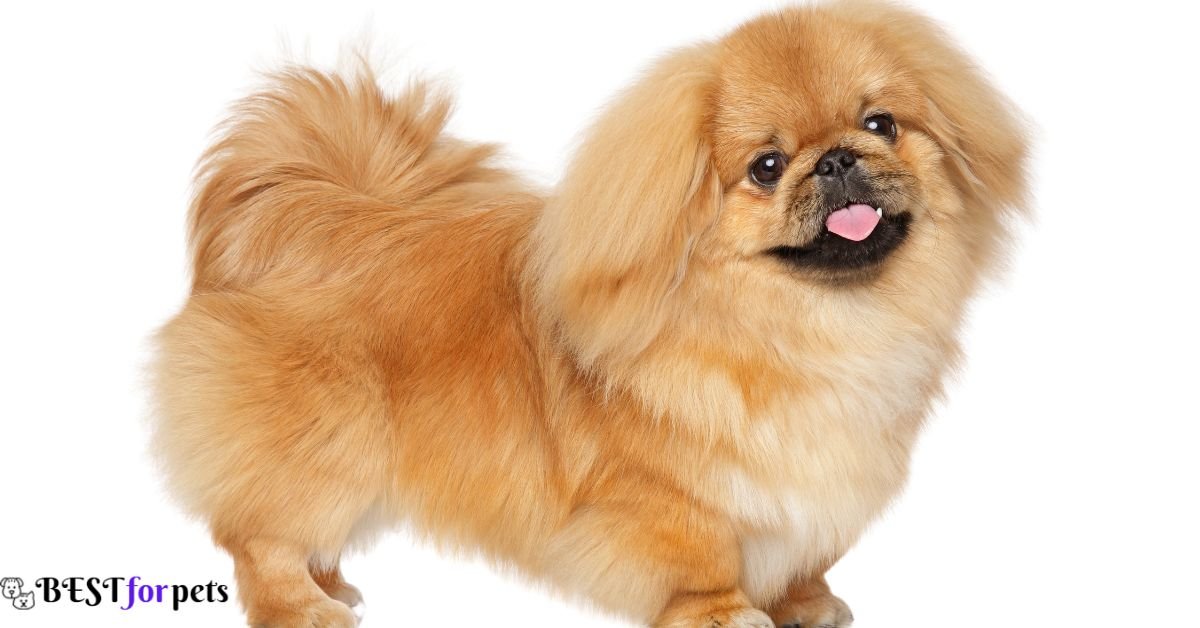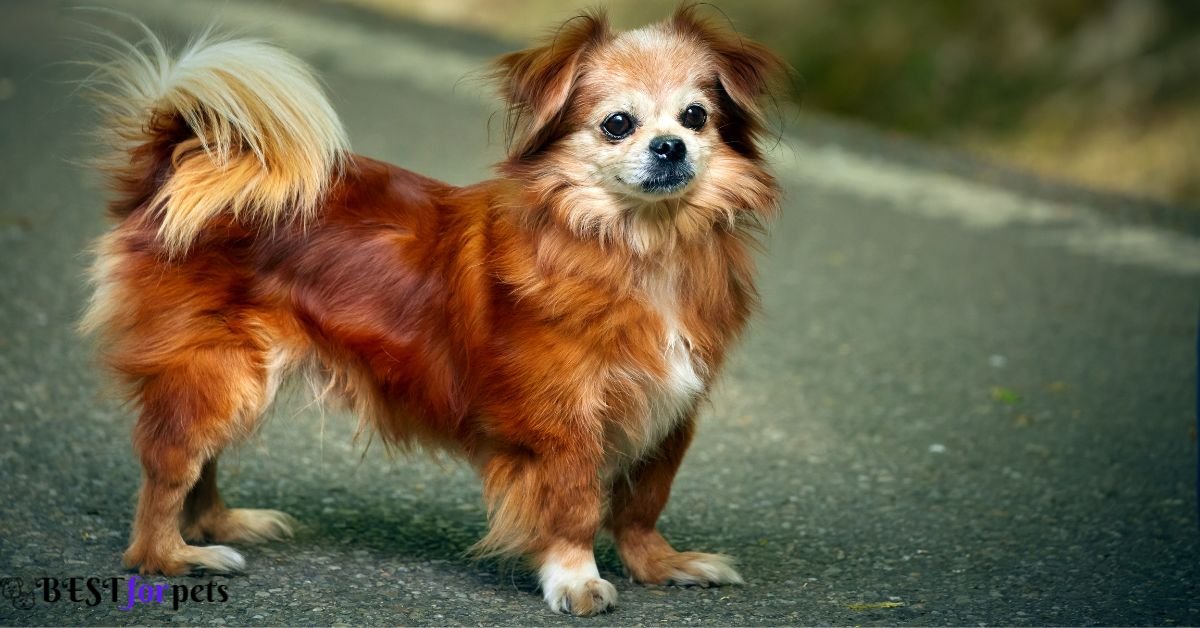//Prices//
Pekingese Dog Price In India
The price of a Pekingese dog in India can vary depending on several factors such as the breeder’s reputation, the lineage of the dog, location, and the quality of the dog. On average, Pekingese price in India can cost between Rs 28,000 to Rs 70,000 or more.

Various Factors That Affects The Price Of Pekingese Dog
The price of a Pekingese dog can vary based on several factors. Here are some key factors that can influence the price:
Breeder Reputation:
The reputation and experience of the breeder can significantly impact the price. Established breeders who have a track record of producing healthy, well-bred Pekingese dogs may charge higher prices compared to less reputable or inexperienced breeders.
Pedigree and Lineage:
Pekingese dogs with exceptional pedigrees, champion bloodlines, or show potential are often priced higher. The lineage of the dog, including the titles and achievements of their ancestors, can contribute to their value.
Conformation and Quality:
Dogs that meet the breed standards in terms of physical appearance, structure, and temperament may have higher price tags. Dogs that possess desirable traits, such as correct coat texture, correct facial features, and proper body proportions, are often valued more.
Health Clearances:
Pekingese dogs that have undergone health screenings and obtained clearances for common breed-specific health issues may be priced higher. Health clearances can include evaluations for hip dysplasia, patellar luxation, eye disorders, and other potential health concerns.
Geographic Location:
The price of Pekingese dogs can vary based on the location. In areas where the breed is less common or in high demand, prices may be higher due to limited availability or increased transportation costs.
Age and Training:
Puppies are generally more expensive compared to adult dogs. Additionally, Pekingese dogs that have received basic obedience training or specialized training for activities such as agility or therapy work may have higher price tags.
Demand and Popularity:
The demand and popularity of Pekingese dogs in a particular region or during specific periods can impact the price. If the demand exceeds the available supply, prices may increase.
Breeding Rights:
Breeders may offer Pekingese dogs at different price points depending on whether they are sold with limited registration (not for breeding) or full registration (breeding rights included).
An Introduction To Pekingese Dog
History of Pekingese
The history of the Pekingese dog is intertwined with Chinese royalty and ancient legends. These dogs were treasured companions of the Chinese imperial family, and their origins can be traced back over 2,000 years. It is believed that the Pekingese breed was selectively bred by Chinese emperors for their unique appearance, regal demeanor, and loyalty.
During the height of the Tang Dynasty (618-907 AD), Pekingese dogs were highly revered and regarded as sacred beings. They were often kept within the Imperial Palace, and stealing or harming a Pekingese was considered a crime punishable by death. The Pekingese breed was virtually unknown outside of China until the late 19th century when British and European forces invaded Beijing during the Opium Wars. The invading forces discovered these captivating dogs and brought them back to their homelands, leading to the breed’s introduction to the Western world.
Appearance of Pekingese Dog
The Pekingese has a distinctive appearance that sets it apart from other breeds. They have a sturdy, compact body covered in a luxurious double coat. Their long, flowing mane around the neck gives them a lion-like appearance, while their large, expressive eyes exude a sense of alertness and intelligence. Pekingese dogs have a flat face with a broad, wrinkled muzzle and a pushed-in nose. Their ears are heart-shaped and set high on the head, and they have a plumed tail that rests over the back.
Pekingese come in various colors, including gold, red, fawn, black, white, and cream. They have a profuse, straight outer coat and a thick, soft undercoat that provides insulation and protection from the elements. This coat requires regular grooming to prevent matting and to maintain its lustrous appearance.

Pekingese Dog Temperament and Activities
Despite their small size, Pekingese dogs possess a confident and independent nature. They are known for their regal demeanor and a certain air of self-importance. Pekingese are devoted and loyal to their families but can be wary and aloof with strangers. They make excellent watchdogs and will bark to alert their owners of any potential threats.
Pekingese dogs are generally not recommended for families with young children due to their delicate structure and the potential for accidental injuries. However, they can form strong bonds with older children who understand how to handle them with care and respect.
In terms of exercise, Pekingese dogs have moderate exercise needs. They enjoy daily walks and play sessions but are not high-energy dogs. Their short legs and compact bodies make them better suited for indoor activities, and they adapt well to apartment living. Keep in mind that Pekingese are prone to weight gain, so regular exercise and portion control are important to prevent obesity.
Regarding temperament, Pekingese dogs have a dignified and sometimes stubborn nature. They require consistent, patient training from an early age to prevent them from becoming overly bossy or possessive. Positive reinforcement techniques, such as rewards and praise, work best with this sensitive breed.
Pekingese Dog Health Issues
While Pekingese dogs are generally healthy and long-lived, like all dog breeds, they are prone to certain health issues. Being aware of these conditions can help you take preventive measures and provide the best possible care for your Pekingese. Here are some common health issues associated with the breed:
Brachycephalic Syndrome:
Pekingese have a flat face, which can lead to breathing difficulties, especially in hot weather or during exercise. They are susceptible to brachycephalic airway syndrome, which includes narrow nostrils, elongated soft palate, and a small windpipe. Symptoms may include snoring, difficulty breathing, and intolerance to heat. It’s crucial to keep your Pekingese in a cool and well-ventilated environment.
Eye Problems:
Pekingese dogs have large, protruding eyes, making them prone to various eye conditions. These include corneal ulcers, dry eye (keratoconjunctivitis sicca), cataracts, and progressive retinal atrophy (PRA). Regular eye examinations by a veterinarian are important to catch any issues early and prevent potential vision loss.
Orthopedic Issues:
Pekingese dogs have a stocky build and short legs, which can put stress on their joints. They are prone to patellar luxation (dislocation of the kneecap), hip dysplasia, and intervertebral disc disease. Regular exercise, maintaining a healthy weight, and providing joint supplements (under veterinary guidance) can help support their joint health.
Allergies and Skin Problems:
Pekingese dogs may develop allergies, such as food allergies or allergies to environmental factors like pollen or dust mites. Allergies can manifest as skin irritations, itching, hair loss, and ear infections. A proper diet, regular bathing with hypoallergenic shampoo, and avoiding known allergens can help manage these issues.
Dental Disease:
Pekingese dogs are predisposed to dental problems, including tooth decay, gum disease, and tooth loss. Establish a regular dental care routine that includes daily tooth brushing and regular dental check-ups. Providing dental chews and appropriate toys can also help maintain good oral hygiene.
Pekingese Dog Care Tips
To ensure the health and well-being of your Pekingese, here are some essential care tips to keep in mind:
Regular Veterinary Check-ups:
Schedule routine check-ups with a veterinarian to monitor your Pekingese’s overall health, vaccinations, and preventive care. Early detection of any health issues can lead to better outcomes.
Proper Nutrition:
Provide a well-balanced, high-quality diet that meets the nutritional needs of your Pekingese. Obesity can exacerbate many health issues, so monitor their food intake and avoid overfeeding. Consult your veterinarian for guidance on portion sizes and suitable diets for your dog’s specific needs.
Grooming:
Pekingese dogs have a long, double coat that requires regular grooming. Brush their coat daily to prevent matting and tangling. Pay attention to areas like the ears, tail, and paw pads. Regularly trim their nails, clean their ears, and brush their teeth to maintain overall hygiene.
Exercise and Mental Stimulation:
Although Pekingese dogs are not high-energy, they still need regular exercise to maintain a healthy weight and prevent behavioral issues. Short walks, play sessions, and interactive toys can help meet their exercise needs. Mental stimulation through puzzle toys or training exercises is also important for their well-being.
Environmental Considerations:
Pekingese dogs are sensitive to extreme temperatures. Protect them from excessive heat or cold, as they can struggle with their breathing in hot weather or chill easily in cold temperatures. Provide a comfortable, temperature-controlled living environment.
Socialization and Training:
Early socialization is essential to ensure your Pekingese is well-adjusted and comfortable in various situations. Positive reinforcement training methods, such as rewards and praise, work best with this intelligent but sometimes stubborn breed.
Diet and Nutrition for Pekingese Dog
High-Quality Dog Food:
Choose a high-quality commercial dog food that is specifically formulated for small breed dogs. Look for brands that list a named meat source as the first ingredient and avoid foods that contain excessive fillers, artificial additives, or by-products. Small breed formulas are typically designed to meet the nutritional needs of small dogs, including Pekingese.
Balanced Nutrients:
Ensure that the dog food you choose provides a balanced combination of proteins, carbohydrates, and fats. Proteins should come from quality animal sources, such as chicken, beef, or fish. Carbohydrates can be obtained from sources like whole grains (e.g., brown rice, oatmeal) and vegetables. Healthy fats, like those from fish oil or flaxseed, are beneficial for maintaining skin and coat health.
Portion Control:
Pekingese dogs have a tendency to gain weight, so it’s important to monitor their portion sizes and avoid overfeeding. Follow the feeding guidelines provided by the dog food manufacturer, but also consider your Pekingese’s individual needs, activity level, age, and metabolism. Dividing their daily food into two or three smaller meals can help prevent overeating and aid digestion.
Avoid Overfeeding Treats:
Pekingese dogs can be prone to obesity, so it’s crucial to limit the number and size of treats given. Opt for healthy, low-calorie treats and use them sparingly as rewards during training sessions or for special occasions. Alternatively, you can use a portion of their daily food as treats to avoid excessive calorie intake.
Fresh Water:
Always ensure that your Pekingese has access to fresh, clean water. Change the water regularly to maintain its freshness and hygiene.
Special Considerations:
Pekingese dogs with certain health conditions may require a specialized diet. For example, if your Pekingese has food allergies or sensitivities, your veterinarian may recommend a limited ingredient diet or a specific hypoallergenic food. If your dog has any dietary restrictions or health concerns, consult your veterinarian for appropriate dietary recommendations.
Regular Feeding Schedule:
Establish a regular feeding schedule for your Pekingese and stick to it. Dogs thrive on routine, and consistent mealtimes can help with digestion and prevent begging or food-related behavior issues.
Monitor Body Condition:
Regularly assess your Pekingese’s body condition by observing and feeling their ribs and waistline. You should be able to feel the ribs easily without excess fat covering them, and there should be a slight waistline when viewed from above. If you notice your Pekingese is gaining weight or becoming too thin, adjust their food portions accordingly and consult your veterinarian if needed.
Frequently Asked Questions
Are Pekingese dogs good with children?
Pekingese dogs are generally not recommended for families with young children due to their delicate structure and potential for accidental injuries. However, they can form strong bonds with older children who understand how to handle them with care and respect. Early socialization and proper supervision are essential when introducing Pekingese dogs to children.

